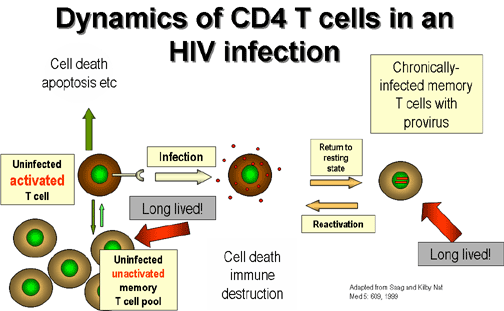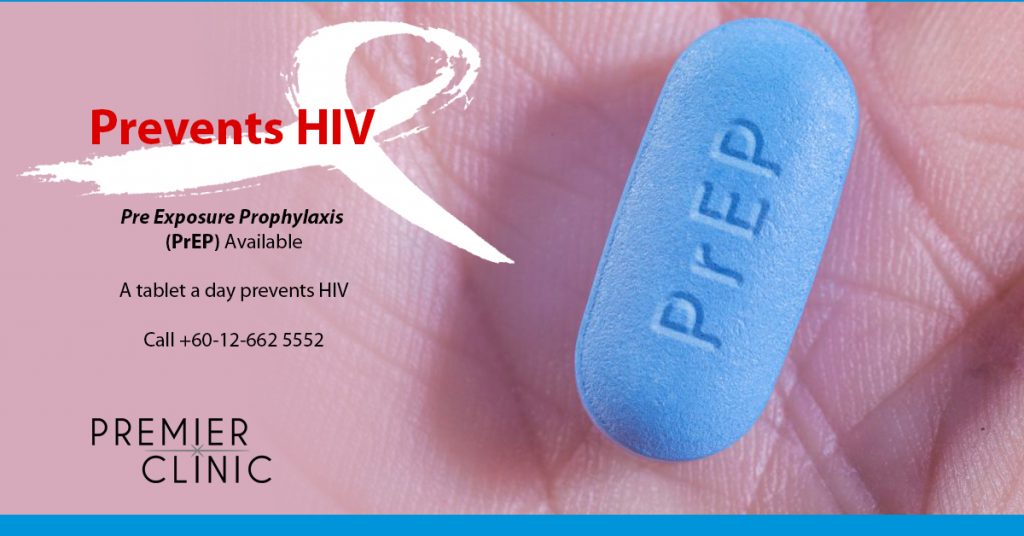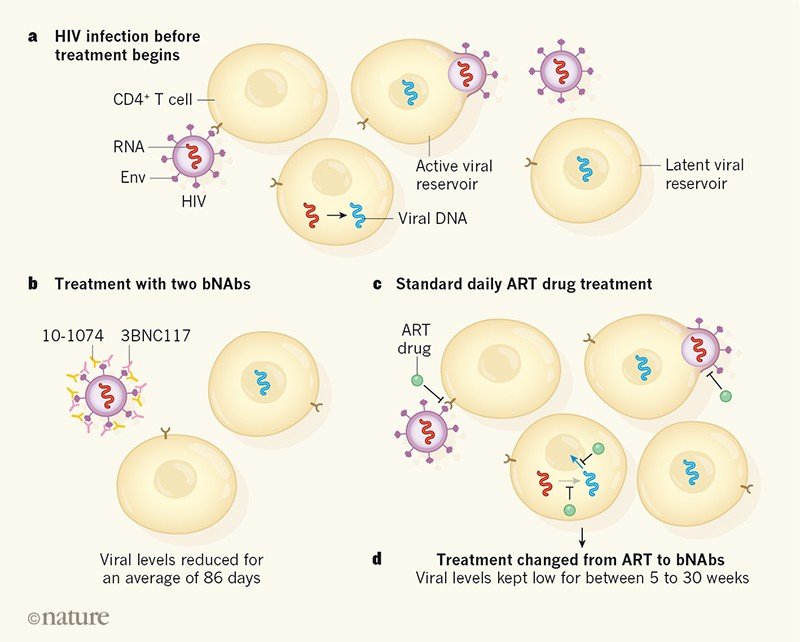How Long Can Hiv Live Outside Of The Body
Human immunodeficiency virus has created such an intense fear of infection in some that it extends well beyond the fear of sexual transmission. In fact, some people remain convinced that you can get HIV by coming into contact with an object or surface on which there may be HIV-infected blood or semen.
After all, it would seem reasonable to suggest that the more blood or semen there is, the longer the virus can survive outside of the body. And, in turn, if the virus is able to survive, it surely has the potential to infect, right?
To 28 Days After Exposure
The exception: a symptom called lymphadenopathy, the sometimes painful swelling of lymph nodes in the neck, behind the ears, under the armpits, or in the upper groin region. Even when the other symptoms have disappeared, lymphadenopathy may continue for months or even longer.
“The important thing to remember is that the resolution of symptoms does not mean the infection is gone,” says Dennis Sifris, MD, an HIV specialist with the Lifesense Disease Management Group, located in South Africa. “HIV is not like hepatitis, which can spontaneously clear. HIV is forever and is better treated sooner rather than later.”
How Does Hiv Turn Into Aids
HIV and AIDS are often used interchangeably. However, the two are very different. HIV is a;virus. Without treatment, HIV can destroy the immune system and end with AIDS. AIDS is the last stage of the development of HIV. The three stages of HIV infection are acute HIV infection, clinical latency and AIDS. Though there is no cure;for HIV,;there are drugs available that can delay or even prevent the progression of HIV to AIDS.;
Don’t Miss: How Can I Tell I Have Hiv
Days To 20 Years After Exposure
The chronic stage of infection occurs once the immune system brings the virus under control. During this phase, HIV will go into hiding, where it resides in various cells and tissues throughout the body in a dormant state known as latency. HIV latency can persist without symptoms for 10 years or more, although some people may experience signs within a year or two.
During the early chronic phase, lymphadenopathy may be the only notable sign of an HIV infection. In some cases, the glands may be visibly enlarged and reach up to an inch or more in size. If the condition persists for more than three months, its referred to as persistent generalized lymphadenopathy .
Even during latency, the virus will multiple imperceptibly and gradually deplete immune cells known as CD4 T-cells. As immune deficiency develops, a number of nonspecific symptoms are likely to appear, including:
- Oral candidiasis , a fungal infection that causes the formation of creamy, white lesions on the sides of the tongue and lining of the mouth
- Unexplained fevers and drenching night sweats that soak through bedsheets and nightclothes
- Severe, uncontrolled diarrhea that lasts for more than three days
Each of these symptoms is commonly seen in persons with immune deficiency. They may, in some cases, be caused by HIV itself or by an infection that has yet to be diagnosed.
More On Hiv Transmission Risks At Thebodycom

To find out more about how HIV is passed on, we recommend the following articles:
In addition, our Q&A experts sometimes address questions about transmission risks in our “Ask the Experts” forums. Here are some of those questions and our experts’ responses:
- hiv survival outside of the body — divergence of opinionsI’ve seen many people say that the virus dies very quickly when exposed to air but I’ve found information elsewhere saying HIV can survive for 5-6 days outside the body in room temperature and drying does not affect its infectivity.
- How long does HIV survive outside the body?I recently touched a door handle that had urine on it. I got the fluid on my palms and I was wondering if you could catch HIV like that. I think the urine had been there for about six hours.
You May Like: What Is The Hiv Rate In Atlanta
Things To Know About Hiv Suppression
A vial of blood
A vial of blood
Development of antiretroviral drugs to treat HIV has turned what was once an almost always fatal infection into a manageable chronic condition. Daily antiretroviral therapy can reduce the amount of HIV in the blood to levels that are undetectable with standard tests. Staying on treatment is crucial to keep the virus suppressed. NIAID-supported research has demonstrated that achieving and maintaining a durably undetectable viral load not only preserves the health of the person living with HIV, but also prevents sexual transmission of the virus to an HIV-negative partner.
How Long Does Hiv Survive Outside The Body
In general, the virus doesnât live long once itâs outside of a human body. Studies show that HIV grown in the lab, when placed on a surface, loses most of its ability to infect — 90% to 99% — within several hours. And the level of virus tested was much higher than whatâs found in bodily fluids. So contact with dried blood, semen, or other fluids poses little risk.
Tiny amounts of HIV have been found in saliva, poop, sweat, and tears. But research shows it poses little risk.
The virus canât survive in water, so you donât have to worry about swimming pools or hot tubs.
One study found HIV can live in used needles for over a month if the temperature and conditions are just right. That means sharing needles or syringes, like during drug use, raises your risk of infection.
You May Like: How Long It Take For Hiv Test Results
How Is Hiv/aids Diagnosed
Early HIV infection often causes no symptoms, and must be detected by testing a person’s blood for the presence of antibodiesdisease-fighting proteinsagainst HIV. These HIV antibodies generally do not reach levels high enough to detect by standard blood tests until 1 to 3 months following infection, and may take as long as 6 months. People exposed to HIV should be tested for HIV infection as soon as they think they may have been exposed to HIV.
When a person is highly likely to be infected with HIV and yet antibody tests are negative, a test for the presence of HIV itself in the blood is used. Repeat antibody testing at a later date, when antibodies to HIV are more likely to have developed, is often recommended.
How Is Hiv Prevented
The first and most important thing to do is to be tested and learn your HIV status. If your results are negative, HIV can be most effectively prevented by abstaining from sex or having only one sex partner who is not infected with HIV and staying faithful.;
Ask your doctor about PrEP, a pill taken once daily to prevent HIV if you are at risk for HIV.; For more information about PrEP or to make a PrEP appointment call 850-595-6345.;
Using safer sexual practices including correct and consistent use of condoms can also help prevent infection. Intravenous drug users can prevent HIV transmission by not sharing needles when injecting drugs. Pregnant women can prevent transmitting the disease to their children by getting proper care and treatment during pregnancy.
Don’t Miss: What Causes Hiv To Turn Into Aids
Days Weeks Months Or Years
Written by Bhavyajyoti Chilukoti | Updated : December 1, 2017 8:27 AM IST
If a person is HIV-positive, then how long does it take for them to get AIDS is a common query that most people have. Given the fact that the human immunodeficiency virus virus can remain dormant in the body before it can lead to an infection and if a person gets infected, will it progress slowly or will the person die within a short time? However, in reality, for an HIV infection to turn into full-blown acquired immune deficiency syndrome , it depends on a lot of factors, says Dr V Sam Prasad, Country Programme Director, AIDS Healthcare Foundation. Here are few Frequently Asked Questions about HIV.
How long does it take to acquire full blown AIDS?
The important thing to keep in the mind is it doesn’t matter whether you suffer from any co-infection or other health problems, it takes the same time for an HIV infection to turn into full-blown AIDS. In India, a span of 8 – 10 years is what it takes for an untreated HIV infection. This includes the HIV-positive patient suffering from various other infections before leading to full-blown AIDS. For the infection to be categorised as full-blown AIDS, the person should harbour more than two to three infections, have a low CD4 count and very high viral load. Read about the diagnosis of HIV and AIDS.
What Do The Test Results Mean
If You Are PositiveIf you test Positive, it means that you are infected with HIV. A positive diagnosis also means that you can spread the virus to others if do not take precautions. You will not die from HIV, but you should seek medical attention immediately.
If You Are NegativeIf you test Negative, it means that you were not carrying HIV antibodies at the time of the test. However, it does not necessarily mean that you are not infected with HIV. If you took the test during the window period-the period of time between transmission and your bodys recognition of the virus-it might just be too early for a test to detect HIV in your bloodstream. For the most accurate results, wait three to six months after suspected transmission to get tested. If you do test negative, just remember that you can still become infected in the future and you must remain careful.
Don’t Miss: How Do You Know If You Contracted Hiv
How To Prevent Hiv From Advancing To Aids
AIDS is the most advanced stage of HIV. The best way to avoid AIDS is to start antiretroviral therapy as soon as possible. Taken every day as prescribed, these drugs will keep you healthy and make your viral level so low, it canât be detected. Sticking to the right treatment can keep AIDS at bay for years and decades. It also practically eliminates the chances that youâll pass HIV to your sexual partners and others. Many HIV-positive people live normal life spans.
What Are The Signs & Symptoms Of Hiv And Aids

When first infected with HIV, a person may have:
- fever
- increased number of infections
- infections that are more severe than is typical
Without treatment, HIV can lead to a very weakened immune system and progress to AIDS. Illnesses that happen in AIDS are called “AIDS-defining conditions.”
AIDS-defining conditions include:
- very fast and severe weight loss
- a lung infection called pneumocystis pneumonia
- Kaposi sarcoma
- lymphoma
Recommended Reading: How Does Hiv Affect People
Stages Of Hiv Infection
The stages of infection from person to person vary slightly, both in severity and the speed of progression. These stages map the depletion of immune cells as the body’s defenses further and further degrade.
With each progression, the risk of opportunistic infections increases until the immune system is said to be fully compromised. It is at this stage that the risk of illness and death is particularly high.
The stages of infection can be roughly classified as follows:
What If I Keep Missing Doses
Wohl explained that people most commonly miss antiretroviral medication doses because of events in their life that cause chaos or get in the way of pill-taking. Its not because HIV antiretroviral pills are harder to take than other pills or because they cause more side effects.
Be honest with provider and tell them how often doses of meds are being missed and why. Asking for help with adherence earns you cred and lets provider find ways to help. Pill boxes, setting a cell phone reminder, getting a family member or friend to help are all examples of interventions that could support medication taking, Wohl said.
Your provider is there to help, and wants to see you do well. If you have any issues with your medications, its best to talk to your provider about it right away. If youre uncomfortable with your current medication regimen, your provider might be able to work with you to find one thats a better fit.
Wohl said that providers can also provide medications that are less likely to lead to drug-resistant HIV. For some regimens, the virus has to do many more tricks to become mutated and therefore less susceptible to the drug. These can be used in those who may be with their meds, said Wohl.
Don’t Miss: How Can Hiv Be Contracted
A Timeline Of Hiv Symptoms
What is HIV?
HIV is a virus that compromises the immune system. Theres currently no cure for it, but there are treatments available to reduce its effects on peoples lives.
In the majority of cases, once HIV infection takes hold, the virus stays in the body for life. However, unlike what may occur with infections by other types of viruses, HIV symptoms dont suddenly appear and peak overnight.
If left untreated, the disease progresses over time through three stages, each with its own set of possible symptoms and complications some severe.
Regular antiretroviral treatment can reduce HIV to undetectable levels in the blood. At undetectable levels, the virus wont progress to the later stages of HIV infection. In addition, the virus cant be transmitted to a partner during sex.
How Long After A Possible Exposure Should I Be Tested For Hiv
It takes the human body three to six months to seroconvert, or recognize the HIV virus in such a way that it would appear positive in a blood test. The amount of time between transmission and seroconversion is called the window period. For the most accurate results, it is best to wait until the three-to-six month window period has passed to get tested.
Recommended Reading: What Is Hiv 1 And 2 Antibody Test
Lack Of Symptoms In Early Stages
ARS is common once a person has HIV. Still, this isnt the case for everyone. Some people have HIV for years before they know they have it. According to HIV.gov, symptoms of HIV may not appear for a decade or longer. This doesnt mean that cases of HIV without symptoms are less serious. Also, a person who doesnt experience symptoms could still transmit HIV to others.
Symptoms in early HIV tend to appear if the rate of cell destruction is high. Not having symptoms can mean that not as many CD4 cells, a type of white blood cell, are killed early on in the disease. Even though a person has no symptoms, they still have the virus. Thats why regular HIV testing is critical to prevent transmission. Its also important to understand the difference between a CD4 count and a viral load.
What Is Usually The First Sign Of Hiv
The initial presentation of an HIV infection is a flu-like illness which includes:
- Rash
- Swollen lymph nodes: Lymph nodes are a part of the bodys immune system that helps get rid of bacteria and viruses. An HIV infection, like many other infections, can cause the inflammation of lymph nodes, which can be felt as round or nodular swellings in the armpit, groin, and neck. The swelling is often associated with aches and pains in these areas.
Also Check: Can You Get Hiv Through Kissing
When And Who Should Get Tested
The CDC recommends that anyone between ages 13 and 64 should have them tested for the infection. It is important to undergo a repeat test if you have changed your sexual partner. In most cases, you should have your HIV test after 3 months of engaging in sexual activity with a new partner. Some people are at high risk for contracting the virus this is true for IV drug users, homosexual males, and those who change sex partners often. For them, it is important to go for HIV testing every 6-12 months.
Your body may have enough antibodies after 3 months of becoming infected some people may have those antibodies within;20 days of becoming infected. Therefore, it is a good idea to go for testing every six months, especially if you have had unprotected oral, anal, or vaginal sex with a different partner during this time. To get tested, you can go to your local health department, doctor’s office, or hospital. Nowadays, special sites are set up to help you with HIV testing these testing sites keep your data private and share it only with medical experts authorized to see your record.
Risk of HIV
It is worth mentioning that certain factors put you at an increased risk of becoming infected. For instance, you are likely to contract the HIV virus if:
You should talk to your healthcare provider to get more information regarding how long can HIV go undetected and how often you should go for HIV testing.
What Do I Do If I Learn That I Am Positive

First, take a deep breath. A positive HIV diagnosis does not mean you are dying. But you should seek medical help as soon as possible. Even if you feel fine, its important to gather information and connect with an HIV professional so you can make informed decisions for your future. Also, be sure to connect with others. Learning that you are HIV positive can be an isolating experience, but you are not alone. Find an HIV/AIDS community in your area where counseling and support groups are available. Think it through before you decide who you want to tell about your status, and make sure you feel comfortable with your choices. Inform your current and previous partners so they can get tested, too.
Also Check: How Long Does Hiv Live On Surfaces